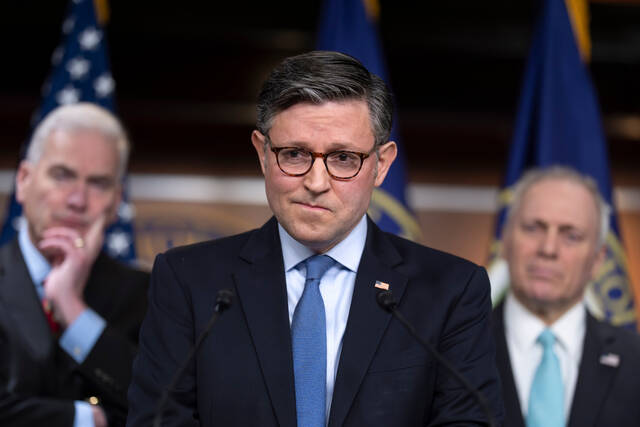The University of Pittsburgh School of Medicine on Monday touted new Alzheimer’s disease research that could contribute to diagnosing the disease and starting treatment of it before it enters its final stage, which ends in death.
More than 12 federal grants helped defray the cost of the research.
Similar federal funding for future research could be in jeopardy because of a directive by the Trump administration to cut overhead costs incurred by researchers like those at the University of Pittsburgh, Carnegie Mellon University and Penn State University.
Attorneys general from 22 states filed a lawsuit Monday against the Trump administration for slashing funding for medical and public health research at universities nationwide, The Associated Press reported.
Later on Monday, a federal judge in Massachusetts temporarily blocked the cuts from taking effect, setting a hearing for later this month to settle whether they are legal and should proceed.
Pennsylvania Attorney General David W. Sunday, a Republican, wasn’t among the 22 attorneys general filing the suit.
“We are speaking with institutions throughout Pennsylvania which are impacted by NIH’s change in policy and are in the process of assessing the best approach to protect their interests,” said Brett Hambright, a spokesperson for Sunday.
The suit was filed in federal court in Boston and challenges the Trump administration, the Department of Health and Human Services and the National Institutes of Health over efforts to reduce funding.
The suit details that some indirect costs include lab, faculty, infrastructure and utility costs.
The states argue that research into treating and curing human disease “will grind to a halt” and people would lose access to “modern gene editing, vaccines such as flu vaccines, and cures for diseases like cancer, infectious diseases and addiction.”
Federally funded research has a big impact on Western Pennsylvania’s economy, Pitt said in a statement.
NIH is Pitt’s largest federal research sponsor at nearly $700 million, funding that represents over half of the University’s $1.2 billion in research expenditures, primarily focused on the health sciences, Pitt said.
It did not detail how much of the funding would be in jeopardy because of the new directive.
“The university is tracking and reviewing all of the new administration’s Executive Orders and guidance carefully and will take appropriate and necessary actions based on that review,” the statement reads.
Carnegie Mellon, which received $37.4 million in federal research funding from the NIH last year, released a statement that said the move would have what it called immediate and sweeping consequences for research universities across the country.
“We recognize that this turbulent environment is creating significant uncertainty about current and future research funding for many of you,” the university said in a statement to its research community.
“We are hopeful that our collective efforts will result in protecting the strong research partnership with the federal government that has made our nation’s research universities the envy of the world,” added the statement, which was signed by James H. Garrett Jr., CMU’s provost and chief academic officer, and Theresa Mayer, vice president for research.
Massachusetts Attorney General Andrea Joy Campbell called the move an attempt “to unlawfully undermine our economy, hamstring our competitiveness, or play politics with our public health.”
Rhode Island Attorney General Peter Neronha, whose state has several significant research institutions including Brown University and the University of Rhode Island, said the Trump administration seemed “hell-bent on upending advancement in this country.”
“This reduction in funding would seriously threaten the future of this research,” Neronha said in a statement. “If you’ve ever wished for a cure, for better treatment options, for yourself or a loved one, this should feel personal.”
Last week, the NIH announced it was cutting payments toward overhead costs for research institutions that receive its grants, a policy that could leave universities with major budget gaps. Currently, some universities receive 50% or more of the amount of a grant to put toward support staff and other needs, but that would be capped at 15%.
The states want the court to declare that rate change unlawful.
Of the more than $35 billion NIH research funds in fiscal year 2023, about $26 billion was spent of what it called direct research costs and $9 billion went to overhead, or indirect costs.
The proposed NIH coverage cap of 15% is above what some private foundations allocate for indirect costs. For the Gates Foundation, it’s 10% and the Robert Wood Johnson is at 12%. The Carnegie Corporation of New York and the Rockefeller Foundation are both at 15%.








